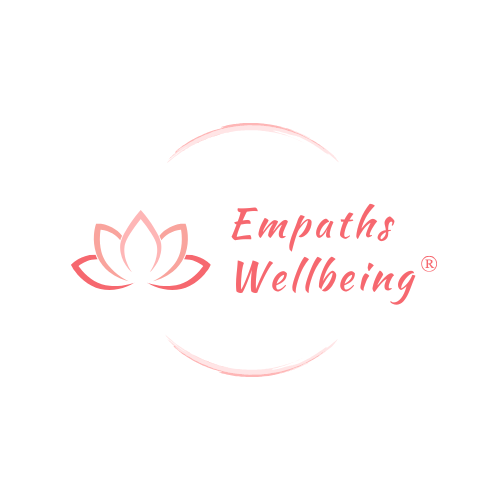Heal Your Heart and Soul
Life is full of surprises, but not all of them are pleasant. For empaths, highly sensitive persons, and those on an inner trauma recovery path, shocking events can be particularly overwhelming. These experiences can leave lasting imprints on the heart and mind, making it essential to find effective ways to heal. In blog post I’ll share my insights on how I healed and recover from traumatic experiences.
What is a Shocking Event?
Shocking events are unexpected occurrences that disrupt our sense of normalcy and safety. They can range from personal losses, accidents, or global crises. As empaths, these events can be even more impactful due to their heightened emotional awareness. We often absorb the emotions around them, making it crucial to address and process these experiences thoughtfully.
Understanding the nature of shocking events and their effects is the first step in managing them. A trauma is an emotion or experience that it wasn’t fully processed by our mind, heart and body and as a mechanism of survival we often buried deep inside. Accepting that these events are a part of life, albeit difficult ones, can help us start our healing process. Recognizing the significance of such events will bring you in a state of reclaiming the control over your life and emotions.
The Importance of Self-Care in Trauma Recovery
Self-care is not just a trendy buzzword; it’s a seed of healing from trauma which you plant it and water it every day. When shocking events occur, taking care of yourself includes nurturing your physical, emotional, and psychological health. It’s about creating a safe space where you can heal, grow, and eventually thrive.
Practicing self-care helps in reducing stress, improving mood, and fostering resilience. It acts as a buffer against the emotional turmoil that often follows shocking events. Incorporating self-care routines into daily life can pave the way for smoother recovery and personal growth.
Step 1 – Acknowledge the Shock

Disclosure Affiliate Links: Transparency is a beautiful thing. In our continuous endeavor to provide you with authentic and valuable content, we want to share a gentle reminder that some of our blog posts contain affiliate links. These links help support our work and allow us to keep sharing helpful resources. I only recommend products or services that I tried on my own skin and helped me in my healing journey. These recommendations comes from a place of love and genuine intention, aiming to guide you further along your path of self-discovery and healing. A portion from the commission I receive through the affiliate links is donated every quarter. It’s a win for all parties involved. Thank you for your support!
The first step is acknowledging its occurrence. Denial is a common response, but it can hinder healing. Accepting reality can be painful, but it’s necessary for moving forward. Recognizing the shock allows you to process emotions and begin the healing process.
Overcoming denial involves recognizing your feelings and allowing yourself to experience them fully. It’s important to understand that it’s okay not to be okay. By acknowledging your emotions, you give yourself permission to heal.
Understanding the impact of the event is also crucial. Reflect on how it has affected your life, relationships, and mental health. Journaling or talking to a trusted friend can help in exploring these feelings and gaining clarity.
Step 2- Lean on Support Communities
Support networks play a vital role in recovery. They provide a safe space to share emotions, gain perspective, and receive encouragement. Whether it’s friends, family, professional counselors, or groups of like-mided people, having people you trust around you can make a significant difference in your healing journey.
Building healthy support networks involves reaching out and sharing your experiences with those you trust. Communicate your needs and boundaries and make sure that your support system genuinely understands and supports you.
If your current support community is limited, consider joining online groups or local events where you can meet souls who resonates with your experience.
Step 3 – Practice Self-Compassion and Self-Care
Practicing self-compassion means treating yourself with kindness and understanding, especially during difficult times. It’s about acknowledging your pain without judgment and offering yourself the same empathy you would share to a loved one.
Integrating self-care strategies into your healing process can aid in both physical and emotional recovery. Simple practices like maintaining a balanced diet, exercising, and ensuring adequate rest can enhance your physical well-being.
For emotional self-care, engage in activities that bring joy and peace. Whether it’s meditation, art, or spending time in nature, find what soothes your soul and make it a regular part of your routine.
Step 4 – Reflect and Realign with Values
Reflecting on the event and its impact can provide insights into your personal values and beliefs. This reflection can help you understand how the event aligns with your life goals and what changes might be necessary.
Realigning with your values involves reassessing and reaffirming what truly matters to you. It’s an opportunity to refocus your energy on what brings you purpose and fulfillment. This process can lead to personal, spiritual growth and a renewed sense of direction.
Finding meaning in the experience doesn’t mean justifying it but understanding how it fits into your life’s narrative. It can transform the event from a source of pain into a catalyst for positive change.
Step 5 – Rebuild and Create Resilience

Rebuilding life after a shocking event is a gradual process, but it’s also an opportunity to create resilience. Resilience is the ability to bounce back from adversity, and it can be cultivated through intentional practices.
Start by setting small, achievable goals that align with your values and aspirations. Celebrate each achievement, no matter how minor, as a step towards rebuilding your life.
Utilize tools and resources available to aid in personal growth like books, seminars, and workshops on resilience can provide valuable insights and techniques. Consider working with a spiritual mentor or therapist to guide you through this rebuilding phase.
Healing from shocking events is a deeply personal and unique process. By following these five steps—acknowledging the shock, leaning on support networks, practicing self-compassion, reflecting and realigning with values, and rebuilding resilience—you can create a path towards recovery and growth.
Healing is not linear, and it’s okay to seek help along the way. If you feel ready to meet your Soul Family and to learn more from my alchemy mentor, Sol Tara, how to heal a trauma from any form of abuse, join Golden Age Alchemy Academy. To benefit a discount code, connect or DM me on social media the text “Alchemy”.
Ask Your Soul
How can past experiences reshape your understanding of resilience and empower you in future challenges?


